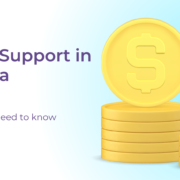Embarking on a journey toward resolution of your divorce can be a daunting task, especially when faced with challenging family matters. Collaborative Divorce offers a unique approach that emphasizes cooperation and mutual understanding. In this blog post, we’ll delve into the four essential phases of Collaborative Divorce, also known as the 4 D’s of Resolution, to guide you through the Collaborative Process.
1. Decide to Enter the Collaborative Process
A. Understand what is required of you: The first step in any Collaborative Matter is to grasp the expectations. Familiarize yourself with the Collaborative Process, its principles, and the commitment it demands. It is also important to understand that your attorneys and other professional team members are only there for the purpose of reaching an out-of-court agreement, and all of the professionals are disqualified from ever engaging in contested court battles.
B. Review and sign the Participation Agreement: Formalize your commitment by reviewing and signing the Collaborative Participation Agreement. This document outlines the rules and guidelines, ensuring that you and your spouse are both on the same page. This is also the document that, once signed, formally commences the Collaborative Process.
C. Commit to the Process: Collaborative Practice works best when both spouses are committed to reaching a resolution. Make a conscious decision to fully engage in the process, recognizing that cooperation and open communication are key elements in reaching a resolution.
2. Disclose all Relevant Information
A. Decide what information is needed: Transparency is a cornerstone of Collaborative Practice. Your professional team will help you determine the financial and other disclosure that you and your spouse will need to make informed decisions later on.
B. Assign information gatherer(s): Delegating responsibilities is an integral part of Collaboration. Assign individuals to gather the necessary information, fostering a sense of shared responsibility. Some of the information may be gathered by a Neutral Financial Professional, and other information will be gathered by the spouse that has the best access to that information.
C. Review shared information: Once gathered, you will thoroughly review the shared information. This step sets the stage for open discussions and helps in understanding the full scope of the situation. As oftentimes one spouse knows a lot more about the family finances than the other spouse, this step helps put the spouses closer to equal footing so they are working off the same information.
D. Work through differences: Differences are inevitable, but Collaborative Divorce is about overcoming them. You will work through any disparities in the shared information. Your professional team can help identify what additional information is needed, including what types of appraisals or valuations may be helpful to help bridge any differences in understanding.
Read more →











